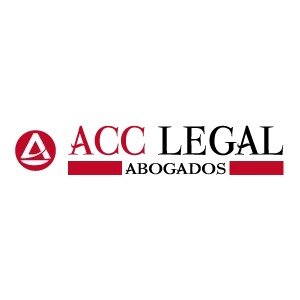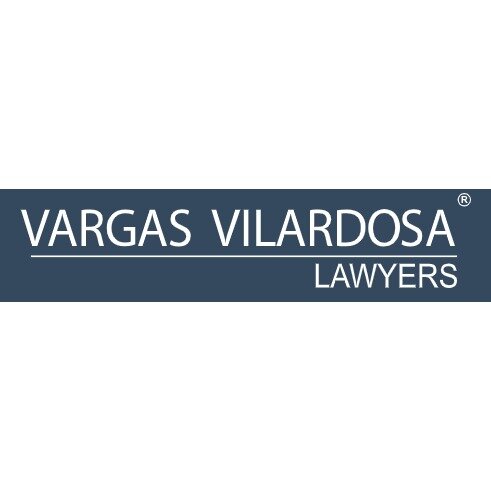Best Energy Regulatory Law Lawyers in Spain
Share your needs with us, get contacted by law firms.
Free. Takes 2 min.
Or refine your search by selecting a city:
List of the best lawyers in Spain
About Energy Regulatory Law in Spain
Energy Regulatory Law in Spain governs the production, distribution, and consumption of energy resources, covering sectors such as electricity, natural gas, and renewables. This area of law is particularly influential because Spain is committed to the European Union's energy policies and climate objectives, leading to continuous legal updates. Regulatory frameworks ensure a competitive, reliable, and sustainable energy market while protecting consumer interests and fulfilling international commitments.
Why You May Need a Lawyer
Legal issues in the energy sector can be complex due to the technical nature of the industry and the fast-evolving regulatory environment. A lawyer specializing in Energy Regulatory Law can be crucial in several scenarios:
- If you are starting a renewable energy project and need to navigate licensing, permits, or grid access.
- If your business faces regulatory compliance issues or inspections from the authorities.
- If you are negotiating energy supply contracts or Power Purchase Agreements (PPAs).
- If you are involved in disputes or sanctions related to pricing, tariffs, or environmental obligations.
- If you need representation in administrative proceedings before regulatory agencies.
- If you need guidance on governmental incentives or subsidies for energy efficiency or renewable projects.
Local Laws Overview
Energy Regulatory Law in Spain is shaped by both national and European Union legislation. Key aspects include:
- Regulatory Bodies: The National Commission of Markets and Competition (CNMC) and the Ministry for the Ecological Transition and the Demographic Challenge (MITECO) are primary regulators.
- Market Liberalization: Spain has liberalized most of its energy markets to encourage competition. However, some regulated pricing remains for small consumers.
- Renewable Energy Promotion: There are specific legal frameworks to promote the investment and integration of renewable sources. These include auctions, guarantees of origin, and self-consumption regulations.
- Grid Access and Tariffs: Access to transmission and distribution networks is regulated, with tariffs subject to governmental oversight.
- Decarbonization and Efficiency: Laws are regularly updated to meet climate targets and energy efficiency directives, which often impact operational requirements and reporting obligations for companies.
- Consumer Protection: Special provisions ensure transparency in billing, fair contract terms, and dispute resolution mechanisms for energy consumers.
Frequently Asked Questions
What entities regulate the energy sector in Spain?
The main regulators are the National Commission of Markets and Competition (CNMC) and the Ministry for the Ecological Transition and the Demographic Challenge (MITECO). These bodies oversee licensing, tariffs, and compliance.
Do I need a special permit to generate solar energy for self-consumption?
Yes, most self-consumption installations require prior registration and may need specific permits, depending on size and grid connection. Your obligations can vary based on whether your system feeds excess energy back into the grid.
How are electricity and gas prices regulated?
While most Spanish consumers can choose their supplier in the open market, regulated tariffs (known as PVPC for electricity and TUR for gas) remain available for small consumers meeting certain criteria.
Are there government incentives for renewable energy?
Yes, Spain offers periodic incentives such as grants, tax breaks, and support for renewable energy projects through competitive auctions and specific programs aimed at increasing renewables in the energy mix.
How are disputes between energy suppliers and consumers resolved?
Disputes are typically handled through the energy supplier's complaint process. If unresolved, the CNMC, consumer institutes, or the courts may intervene.
What reporting obligations exist for energy companies?
Energy companies must comply with extensive reporting requirements regarding environmental impacts, emissions, safety, and market data to both national and European authorities.
How does Spain support decarbonization and energy transition?
Spanish law aligns with European Green Deal objectives, promoting cleaner energy through binding targets, renewable integration, energy efficiency obligations, and support for innovation.
What are the penalties for non-compliance with energy regulations?
Penalties can include fines, suspension of operations, exclusion from incentive programs, or even criminal charges for serious breaches such as environmental violations or fraud.
What is a Power Purchase Agreement (PPA), and is it regulated?
A PPA is a long-term contract between a power producer and a consumer or market participant. While the market is liberalized, PPAs must comply with competition, consumer, and energy regulations.
Do foreign investors face additional legal hurdles in the Spanish energy market?
Generally, foreign investors are welcome and treated equally. However, certain strategic assets may be subject to additional scrutiny or authorization under foreign direct investment rules.
Additional Resources
For more information or assistance, consider consulting the following resources:
- National Commission of Markets and Competition (CNMC)
- Ministry for the Ecological Transition and the Demographic Challenge (MITECO)
- Institute for Diversification and Saving of Energy (IDAE)
- Spanish Renewable Energy Association (APPA Renovables)
- Confederation of Employers and Industries of Spain (CEOE) Energy Committees
- Consumer Protection Agencies
- Local Bar Associations with dedicated energy and environmental law sections
Next Steps
If you require assistance with Energy Regulatory Law in Spain, the following steps can help guide your approach:
- Identify your specific legal issue, whether it is related to compliance, permits, contracts, or disputes.
- Gather all relevant documents, contracts, and communications to support your case.
- Contact a lawyer or law firm specializing in Energy Regulatory Law, ideally with proven experience in your area of concern.
- Request an initial consultation to assess your situation and determine potential outcomes and strategies.
- Stay informed about ongoing changes in law and regulations by subscribing to energy industry updates or joining relevant associations.
- If urgent regulatory action or dispute resolution is needed, ensure your legal representative can act swiftly to protect your interests.
Taking informed and timely action with professional legal support can help you navigate Spain’s complex energy regulatory landscape more effectively and ensure compliance with evolving laws.
Lawzana helps you find the best lawyers and law firms in Spain through a curated and pre-screened list of qualified legal professionals. Our platform offers rankings and detailed profiles of attorneys and law firms, allowing you to compare based on practice areas, including Energy Regulatory Law, experience, and client feedback.
Each profile includes a description of the firm's areas of practice, client reviews, team members and partners, year of establishment, spoken languages, office locations, contact information, social media presence, and any published articles or resources. Most firms on our platform speak English and are experienced in both local and international legal matters.
Get a quote from top-rated law firms in Spain — quickly, securely, and without unnecessary hassle.
Disclaimer:
The information provided on this page is for general informational purposes only and does not constitute legal advice. While we strive to ensure the accuracy and relevance of the content, legal information may change over time, and interpretations of the law can vary. You should always consult with a qualified legal professional for advice specific to your situation.
We disclaim all liability for actions taken or not taken based on the content of this page. If you believe any information is incorrect or outdated, please contact us, and we will review and update it where appropriate.
Browse energy regulatory law law firms by city in Spain
Refine your search by selecting a city.















